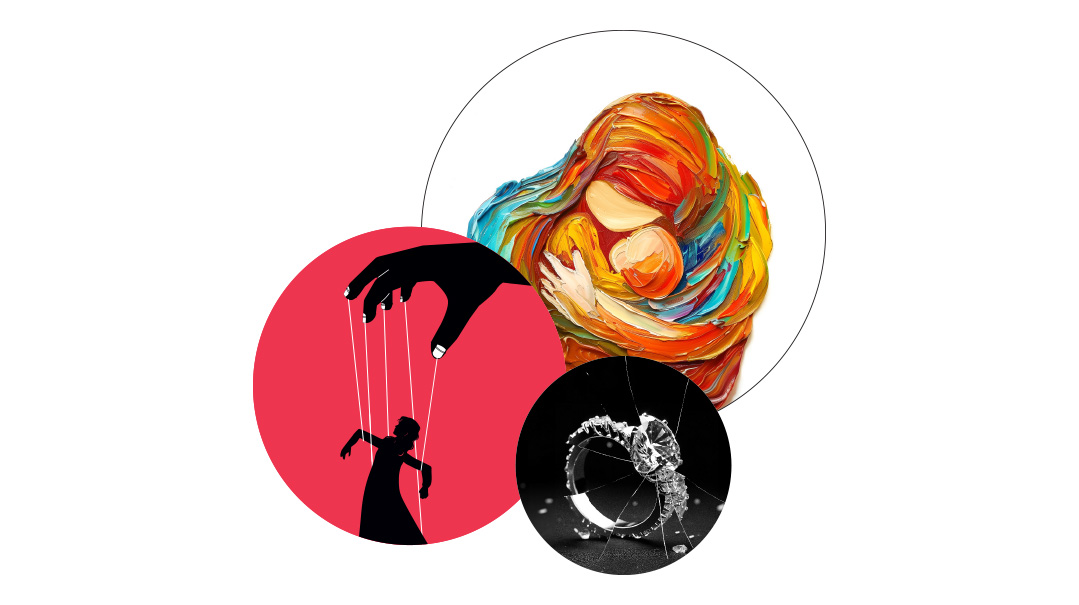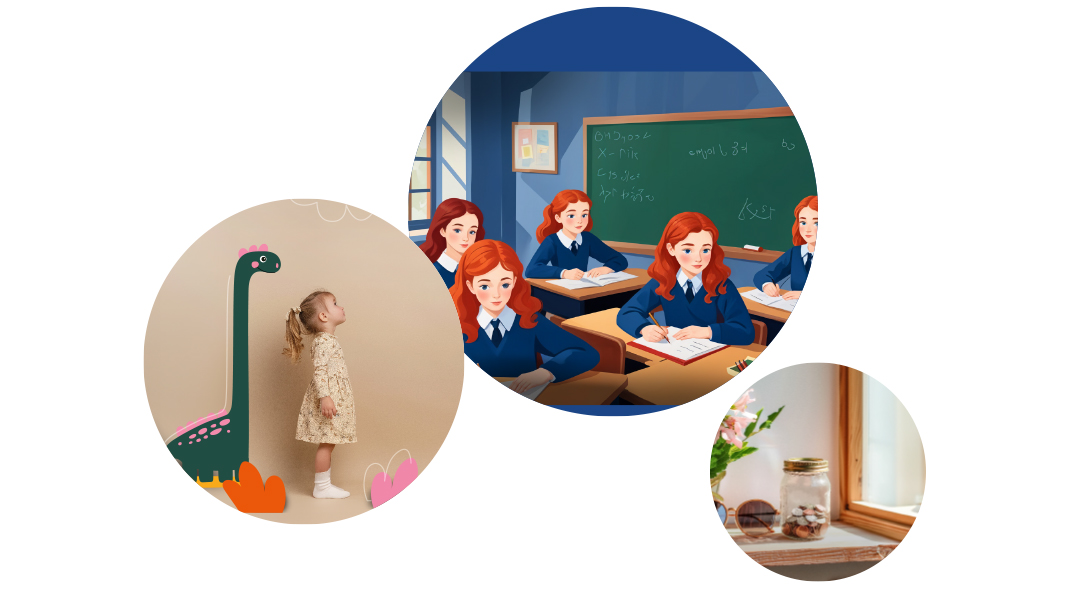Family First Inbox: Issue 807

Almost every frum Jew today has someone in their life who is at risk of being cremated

It’s a Self-Esteem Problem [Touch Base / Issue 806]
Your Touch Base articles about tzniyus were enlightening and interesting, but I feel that unfortunately they are not likely to be accepted by women who could benefit, and here’s why. We all know when our tzniyus could use improvement, that sheitels have become ridiculous, that women working in mixed offices can be too well-dressed and friendly, or that dress styles can be within halachah but not appropriate.
But no woman thinks it’s her, because rarely does she feel confident about herself. Women always think they could or should look better, thinner, or younger and don’t really feel good about themselves. So she wears something a little more bold, or gets a longer sheitel, and still feels not even close to what she wishes she looked like, so she couldn’t possibly be why there’s a tzniyus problem. Almost no woman thinks that she’s the tzniyus problem, because that comes with a realization that not only does she look good, she looks too good.
So bottom line, it’s self-esteem, and that’s the real problem. Maybe as mothers we could work on our relationships with our kids and make them know that they matter and are loved and that we think that they are beautiful. That’s an important goal in and of itself — and maybe it can help change come in the back door.
B. Rothblatt
A Last Kindness [Close to Home / Issue 806]
I enjoy the Close to Home diary serial but wanted to clarify that cremated remains do not confer tumah upon a Kohein at all. The cremation process is so utterly destructive that nothing is left that can be metamei. In fact, nothing traces these ashes back to a human being — certainly not to a specific human being. Even DNA that is just 2 nanometers in diameter — 2 billionths of a meter — is obliterated.
The story indicates that Dorothy and Howard Summers were Jewish (the remains of a Jew are metamei under the same roof, whereas those of a non-Jew are metamei only by touch). The idea of Jews being cremated may be shocking to many in our community, but the tragic reality is that one out of every two Jews who die in the United States today are cremated. Broken down another away, approximately every 16 minutes another Jewish body — a tzelem Elokim — is degraded and destroyed to such a degree…that a Kohein does not become tamei from contact with those remains.
Last Kindness, a project of National Association of Chevra Kadisha (NASCK), under the leadership of Rabbi Elchonon Zohn, proactively works to help every Jew learn about the value of Jewish burial, regardless of affiliation or level of observance. It’s a massive undertaking and one that is a shared achrayus upon all of us. Almost every frum Jew today has someone in their life — a neighbor, a co-worker, even a family member — who is at risk of being cremated. Last Kindness has developed tools including a conversation starter guide, community workshops and a staffed helpline to assist our community to reach out and ensure that every Jew receives the kavod acharon of kevurah. To access these tools and learn more visit EndCremation.org.
No Yid should end up like Howard Summers, reduced to ash on a bedside urn.
Mrs. Yael Davidowitz
Director, Last Kindness, NASCK
Change Starts with Teens [Shattered / Issue 804]
The article about spiritual abuse was very powerful. Spousal control is commonly found in the struggle of young frum couples, which can be prevented with more marriage education in our children’s high school system.
Many who struggle with this are not controlling by nature, but are sincerely looking to establish their Yiddishe house in a certain way. They view their spouses as extensions of themselves, so if the spouse dresses or acts in a way that is below their standards, they are genuinely embarrassed.
As teenagers grow up and look around, they begin to form an opinion of how “my house will look.” And once dating starts, they assume they will marry someone on their exact ruchniyus level — only to find out after the wedding that they have their own ruchniyus struggles in different areas. Comments like “My rav said you should cut your sheitel short” or “You should be getting up for the earlier Shacharis minyan” are embedded in a desire to build a home with their own values, not realizing that their spouse has their own set of values. This reflects a basic lack of education of marriage and is a very common struggle.
Criticizing and trying to change your spouse doesn’t always snowball or result in the extreme case of abuse, but there is a lot of struggling until couples figure this piece out.
Articles like this one are a start, but as a community, we need to do much more to fight abuse. I believe that a big piece of that is educating our children when they are teenagers, which is when they start forming opinions on how they will want to run their own homes.
Name Withheld (so that my kids won’t be embarrassed)
Abuse — or Chinuch? [Shattered / Issue 804]
The article about spiritual abuse was terribly painful to read. Those who have suffered through this should know that Hashem loves them for who they are and that every step forward they take is so precious.
The article did, however, leave me feeling uneasy, because along with the much-needed validation it provides for the victims, and the information it conveys for the general public, it also opens up a Pandora’s box of misunderstanding for this complex and nuanced subject.
I felt that one quote was particularly misleading: “My father used spirituality to scare us into obeying him. If one of the children brought a halachic view that was different from his, he immediately pulled the kibbud horim card.”
Forgive me, but that is a concrete violation of kibbud horim! (Whereas other examples in the body of the article, such as forgetting to do an errand for a parent, are not.)
It is a parental right (and perhaps even an obligation) to teach children about kibbud horim and about the spiritual consequences of our actions.
It would be a shame for readers to walk away thinking that their own parents were abusive for making it a rule that they dress tzanuah, or for parents to doubt their authority as the arbiters of spiritual standards in the home.
Of course this article was meant to be speaking of extreme cases, or of a misuse of spiritual goals by severely disordered people. And while no author need take responsibility for a complete misinterpretation of an article’s words, it seemed to me that this piece was lacking a certain point: not all enforcements of religious practice in the home — even done in a mode of “bad parenting” — constitute abuse.
We need to be careful how we present these issues so that people don’t run screaming “abuse” when it’s really just a lack of good parenting skills.
Mindel Kassorla
Jerusalem
Mrs. Rachel Pill responds:
Thank you for your letter. It is both correct and also, respectfully, incorrect.
You are absolutely correct that parents should be mechanech their children; in fact, as parents, we are obligated to do so. The question is how we do this and what our purpose is in teaching our children how to live a Torah way of life.
Leading a Torah life is not about us and our power over our children (which is what abuse is) but rather about teaching our family and setting a beautiful example of following the Torah and living our best life for Hashem. We need to model and teach our children to be modest (using your example) because Hashem has obligated us as parents to educate the neshamos we are gifted — not as a way of having power and control over another human being.
As parents we have the right to make rules in our home that are respectful and based on facts. Those facts could be Torah, ethics, or based on the laws of where we live. Rules should not be made or enforced by means of psychological, emotional, or physical control. Rules are meant to teach and to guide. I believe that rules and structure are healthy — but they should be made and enforced with chesed and love. Chesed doesn’t mean we say yes to everything; it means we make and enforce rules to teach and guide, not as a way to assert power or have control over another human being.
In healthy parenting, rules are made for the benefit of children so they have loving and healthy boundaries to navigate the process of growing up. If parents are abusive, the rules are made for their sense of power and control, and it’s never about what is emotionally healthy for their children.
Abuse is a word that is bantered about very often and can be used in the wrong way. Please make no mistake that when a person creates a fearful, controlling, powerful, manipulative relationship over another person — that is abuse.
That is different from a negative, unhealthy, non-ideal relationship. Using Hashem and Torah for purposes of power and control is abusive. Chinuch in its proper form is by definition not abuse — but abuse is never to be confused with chinuch.
Finger on the Pulse [Windows / Issue 804]
I very much enjoy the diversity of all the interesting weekly articles, and I particularly appreciate the Family First articles written by Sarah Spero. Her dry wit and humor as well as having her “finger on the pulse” of what is happening in the social world of our Orthodox kehillah is amazing. I found myself smiling and nodding along in agreement with what she wrote. She expresses herself clearly and succinctly on behalf of all of us of a certain age.
May we get more of her thoughts and insights in future issues?
Jenny Kurant
Danger of Dysfunction [To Be Honest / Issue 803]
Heartbreakingly, there are many in our community who are suffering in their marriages. There are many articles talking about the beauty of marriage, which is wonderful, but articles like “It’s Not All Abuse” are so necessary. They raise awareness in our community about what is healthy and what isn’t in a marriage. They give some encouragement to those who need to reach out for help.
Unfortunately, there are some situations of dysfunction that cannot be worked out in a healthy way. There are some marriages in which, as hard as one may work, it will never be a safe and healthy environment. There are also some where the danger is real, and while long-term counseling is appropriate, there is an immediate need to deal with the safety of the mistreated spouse.
Although Mrs. Twerski did hint to this in her article, I wish there were just one or two lines in the article that said this loud and clear. Those that need to hear it the most are often scared and confused and they need a very clear message.
Name Withheld
Lisa Twerski responds:
Each topic within the original article could have been not just its own article, but its own book! Unfortunately, due to space constraints, a lot of things had to be left out, but addressing safety concerns should not have been one of them.
In emphasizing the point that sometimes fear centers on being a “bad” spouse if you assert yourself (as in a dysfunctional marriage), and not on actual danger, the topic of danger and the need to make sure to check out safety concerns was underdeveloped.
More problematic is the fact that it is often the very people who are in actual danger that will read that point and be the ones who tell themselves that they are probably mistaken in their feelings, overreacting, too sensitive. They will be the ones thinking to themselves, “See, it’s not all abuse” and downplay their situation.
If you feel unsafe, don’t ignore that feeling — go speak to someone. Preferably someone who understands all of the different nuances to fear, abuse and safety, who can help you figure out what is possible and what is or isn’t dangerous. Don’t ignore the feeling because you don’t want it to be true, don’t ignore it because you worry that you’ll be told you’re wrong for feeling scared, or that you’re not in real danger so you aren’t entitled to feel scared. Check it out with someone knowledgeable, who can help you figure it out, whether there are real safety concerns or whether there is something else, also distressing and not appropriate to marriage, that you need help with.
I also agree with the point that not all marriages that are dysfunctional can be helped. I think some of the confusion is that the article should have been titled “It’s Not All Domestic Abuse.” Domestic abuse is a particular designation for a particular type of dynamic of power and control in a marriage, as was described in the original article. That does not mean that a marriage that would not be assessed as domestic abuse won’t be unbearable or won’t include abusive behavior. That can go on in a marriage that we would call dysfunctional. It’s why it can be confused with domestic abuse. That designation is not the only criteria that should be used to allow someone to say that their marriage has become unbearable.
(Originally featured in Family First, Issue 807)
Oops! We could not locate your form.







